my quoting of Alan Moore a week ago (a week's gone by and I forgot to post anything?) led to some commentary around the place. Tom Spurgeon,
Ben Schwartz, Sean Collins.
Tom writes about business practices, which is all true enough but it isn't what Alan was referring to. Ben thinks that Alan would think differently if he only read some comics, which makes Ben sound like he arrived only yesterday.
Sean Collins, who clearly likes all the baloney that i have no time for, misses the point too: "In a mind-meld of wildly talented curmudgeons, Tom Spurgeon says he's tempted to agree with Alan Moore and Eddie Campbell that the comics industry is a lost cause. I think that this stems at least in part from some disagreeable "Where has it gone, the beautiful music of our grandparents?" sentiments on the aesthetic end..."
I'll underline the original point by a quote from The Tristan Chord; Wagner and philosophy, by Bryan Magee (published 2000), which should be read analogously since he's talking about politics (and elderly people):
"The unforgiving bitterness of the disappointed left-winger is quite a different phenomenon psychologically from the curmudgeonliness of the reactionary, even if in elderly people the two often show the same symptoms. One is bitterness at the loss of the past, the other bitterness at the loss of a future."
I tried to use that quote once before in a post titled 'Cranky old bastards' but I couldn't find it in the book, odd since it's on page 2, and paraphrased it. Anyway, I identified Alex Toth, (in contrast to Alan, above) as one who was bitter at the loss of the past.
However I did use this other bit which I now can't find: "Paradise is permanently postponed not because of any special wickedness on anyone's part but because it was never available in the first place. To be disillusioned one needs first to have been illusioned." Note that Alan said he 'always despised the comics industry to a certain degree,' and trying to make it into something that it wasn't previously doesn't constitute an illusion. A vision of possibility is something else.
**************
Where the Wild Things are, one of Hayley Campbell's favourite books of all time. On screens starting Oct 16. "Will it explode and cover us with foul-smelling excrement, or will it be the best thing in the world?" she asks, sensibly.
Ben Schwartz, Sean Collins.
Tom writes about business practices, which is all true enough but it isn't what Alan was referring to. Ben thinks that Alan would think differently if he only read some comics, which makes Ben sound like he arrived only yesterday.
Sean Collins, who clearly likes all the baloney that i have no time for, misses the point too: "In a mind-meld of wildly talented curmudgeons, Tom Spurgeon says he's tempted to agree with Alan Moore and Eddie Campbell that the comics industry is a lost cause. I think that this stems at least in part from some disagreeable "Where has it gone, the beautiful music of our grandparents?" sentiments on the aesthetic end..."
I'll underline the original point by a quote from The Tristan Chord; Wagner and philosophy, by Bryan Magee (published 2000), which should be read analogously since he's talking about politics (and elderly people):
"The unforgiving bitterness of the disappointed left-winger is quite a different phenomenon psychologically from the curmudgeonliness of the reactionary, even if in elderly people the two often show the same symptoms. One is bitterness at the loss of the past, the other bitterness at the loss of a future."
I tried to use that quote once before in a post titled 'Cranky old bastards' but I couldn't find it in the book, odd since it's on page 2, and paraphrased it. Anyway, I identified Alex Toth, (in contrast to Alan, above) as one who was bitter at the loss of the past.
However I did use this other bit which I now can't find: "Paradise is permanently postponed not because of any special wickedness on anyone's part but because it was never available in the first place. To be disillusioned one needs first to have been illusioned." Note that Alan said he 'always despised the comics industry to a certain degree,' and trying to make it into something that it wasn't previously doesn't constitute an illusion. A vision of possibility is something else.
**************
Where the Wild Things are, one of Hayley Campbell's favourite books of all time. On screens starting Oct 16. "Will it explode and cover us with foul-smelling excrement, or will it be the best thing in the world?" she asks, sensibly.
Labels: alan moore
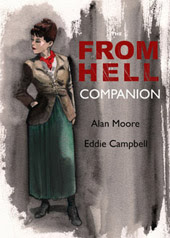
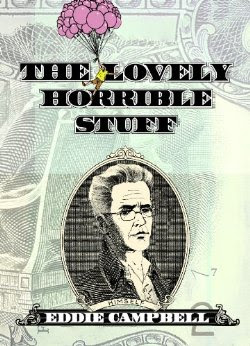

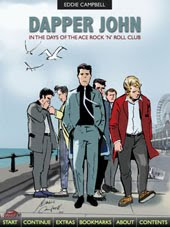
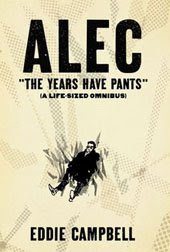
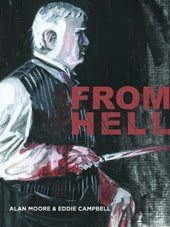

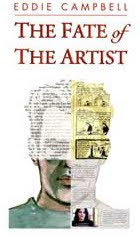
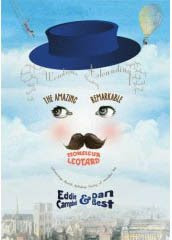

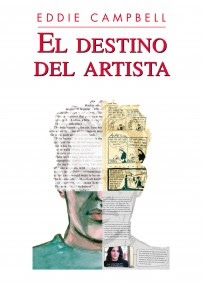

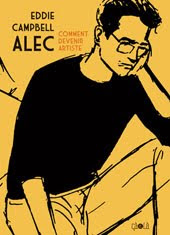

6 Comments:
As a perpetually disappointed bitter left winger, thanks for the great quote.
I got booted out/disillusioned of the comics biz long ago. I never quite fit into the house style or politics of any company. Watchmen for all it's experimentation was still drawn in a wonderful very traditional style. Visual experimentation was always wacked really hard.
But what's great about the "biz" now is the "adult" comics create the space where things can slip by. I'm doing a grant funded graphic novel/web comic and it's just accepted you can do "graphic novels that are appropriate for people to read and not be totally juvenile. The target audience being something hip teens can hand to their parents to explain and explore social networks online.
I couldn't buy the time of day from the comic book biz but I can still make a living, so I'm happy with that space.
And as a lefty, 20 years ago, El Salvadoran priests were getting slaughtered because they were commies. I spent a lot of time trying to help those commies in my sordid youth, and became an old bitter lefty from the futility of it and many other causes. Now the commies just won the election in El Salvador. And then there is this black guy running my country, some days he may indeed be a whisp of some fading dream, some days he seems to be real.
It's hard to give up the bitterness but that line about the "arc of justice" may actually be true. It's almost enough to make one optimistic about comics, today.
I go back to my Jack Kirby comics now.
I can imagine the 'Where the wild things are' movie being a completely joyful tribute to the book (they have made plays (how succesful I don't know) using set designs by maurice sendak, which would suggest they could make a movie), but I can also imagine them making a completely turgid 2 hour long add for toys etc. I hope the first is true.
I would disagree somewhat with Alan's view that if something works well in one medium(?), it can't work well in any other, and the only reason to try to translate something from one medium to another is so you could make more money from it. I do think one can attempt something like this out of love for the original work. Unfortunately Alan's right in that most of the time it is only done for the money.
Eddie, just on behalf of my own opinions, I had to say that I saw watchmen twice, and am slightly obsessed with how good it is. Of course it misses subtleties. But I'm more interested in how it produced essentially the same twisted and savage story, dressed up in American and hollywood imagery, and then like a virus seeded it on a wider range through the collective mind.
The viral trollers here notwithstanding, I think the movie is a generally good-looking piece of two-plus hours. The politics exampled take place in an alternate universe America that bears no similarity to the America of then, now or ever, and more context with the England of Moore's lore. Still, for what it is, I liked the movie, except for its political and social difficulties which are, as I have reminded, in an alternate universe with which we are not familiar. The movie, as the book, has not done well, or as well as strangely expected by some, and hasn't since it's publishing, but the Time-Warner investment may pay it all off soon enough with the coming DVD release.
Um, Dan...the Watchmen book hasn't done well by what standards? Alan said in 1988:
‘We got eight per cent between us for Watchmen.'
Any of the publishers I work for would be more than pleased to have a book which has been selling consistently for 22 years and for which they only have to pay the creators (who I don't believe own the rights either) eight percent of any profits.
As a bookseller in a big London bookshop there's one thing I can say about the film, it drove sales of the book through the roof. We've been selling tens of copies a week since the middle of last year. It has always sold consistently as John C says, but it's the movie hype, first on the web and then in all the other traditional media, that has given it such a push. It'll be interesting to see what sales do now the film's been out for a while.
If nothing else therefore, the movie has seen more people get to enjoy the real thing.
Personally I agree with Hayley about the film, it was impossible for me to separate the scenes on screen from those in the book, so that I was feeding in information that wasn't there in the movie and re-contextualising everything as it went along. It was hard to judge it on it's own merits, but I think one of the (ultimately many) reasons that it didn't work was because the world that supported the story just wasn't developed enough (as it had in the comic), so all that posturing comes off as silly rather than serious. And too much superhuman violence. Not that I wanted more human violence, but everyone could drop-kick goons like they were footballs.
One thing I noted missing from the high-minded discussion of big blue penis, was just how much bigger they made it. It was some kind of schlong. No circumcision that I saw either.
Speaking drawing big willies, I give you the youth of today:
http://news.bbc.co.uk/newsbeat/hi/newsbeat/newsid_7961000/7961224.stm
Ben Smith
Post a Comment
Subscribe to Post Comments [Atom]
<< Home